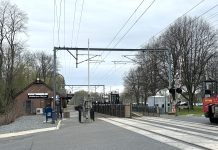By John Burton
SHREWSBURY – It’s time for introspection for the district Board of Education as it looks at how to proceed following last week’s defeated voter referendum.
“We are greatly disappointed,” with the outcome of the Dec. 13 vote, acknowledged Shrewsbury Borough School Superintendent Brent A. MacConnell following Tuesday evening’s board of education meeting.
And now with the voters’ decision fresh on school officials’ minds, “We are currently looking at other options about what we’re going to do,” Board President Karolanne Konefal told the public on hand at this week’s meeting.
Borough voters by significant numbers rejected a four-part referendum that would have granted school officials the opportunity to bond for $28.1 million to do improvements, upgrades, install solar panels, purchase additional property and construct an addition to the pre-K through eighth grade public school at 20 Obre Place.
The requested work presented in the referendum’s first question involved replacing the roof on the structure, whose oldest portions date back to the 1950s, upgrading the building’s restrooms, installing new heating and air conditioning and doing renovations to meet requirements under the federal Americans with Disabilities Act (ADA). That work still needs to be done, MacConnell said. “We do have pressing issues and we’re looking at ways to address it.”
Given the outcome, however, “This might be several years of effort,” to accomplish it, he said.
“We’re going to have to figure some stuff out,” MacConnell said, without offering details at this point.
“We had a plan we thought would take our school well into the 21st century,” Konefal said. And it was a plan that was drafted with public input derived from strategic planning sessions over “a year’s worth of work” and “a massive effort” on the part of board members, MacConnell added.
“But the public has spoken,” Konefal acknowledged.
Some voters said school officials failed to engage residents in the greater community, especially the borough’s large senior population and that contributed to the referendum’s defeat.
MacConnell rejected that contention. “I feel we planned and conducted a lot of information sessions,” he said. “We did talk about this extensively for weeks and months,” stressing the discussions were “transparent.”
The opposition waged a concerted campaign, with lawn signs and a website, and a mailer sent to homes just prior to the vote. Some referendum supporters charged that this message was full of misinformation. And that, MacConnell maintained, played a decisive role. “I honestly believe that’s what happened,” he said.














